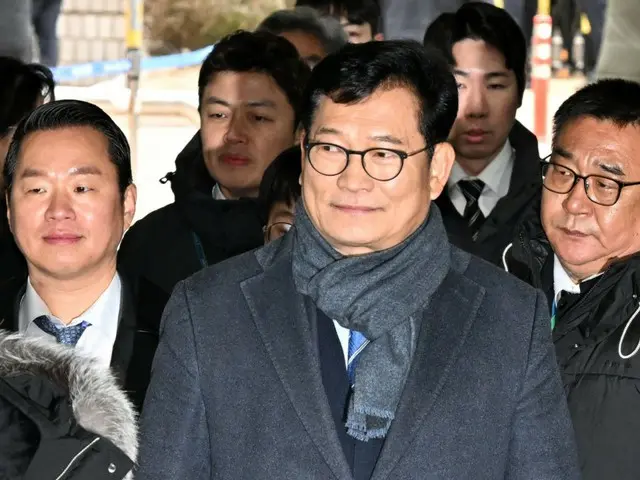According to the legal community on the 19th, the Seoul Central District Prosecutors' Office's Anti-Corruption Investigation Department has prevented Mr. Song, who is currently incarcerated at the Seoul Detention Center, from visiting his family and friends. A prosecutor official said, ``There is a risk that evidence may be destroyed.''
"We normally take such measures when the situation arises." Prosecutors plan to proceed with additional investigations, including investigating the lawmaker who received the cash envelope, and the restriction on access appears to be intended to prevent evidence from being destroyed.
Ru. The restrictions on access are likely to continue until the charges are filed. The same goes for independent lawmaker Yoon Kwang-seok, who was arrested earlier, as well as Kang Re-gu, a standing audit committee member of the Korea Water Resources Corporation, and former aide Park Yong-soo.
Measures are being taken. Mr. Song was arrested on the 18th on suspicion of handing over envelopes containing cash to members of the party at the party's all-party convention (a violation of the Political Parties Act), and on suspicion of receiving illegal political funds and receiving bribes. The prosecutor's office
The plan is to detain Mr. Song for up to 20 days and investigate the charges, and then summon party members suspected of receiving the cash.
Seven members are said to have received the cash envelopes, including independent lawmaker Yoon Kwan-seok.
This was revealed during the cross-examination of witnesses. Meanwhile, Mr. Song's wife, Nam Yong-shin, said on the YouTube channel "Song Yong-gil TV", ``Even during the Chun Doo-hwan dictatorship, there was no family home.''
It was possible to visit family members, and books were also given to them. What is this?'' and asked for help.
2023/12/20 06:56 KST
Copyrights(C) Herald wowkorea.jp 104

